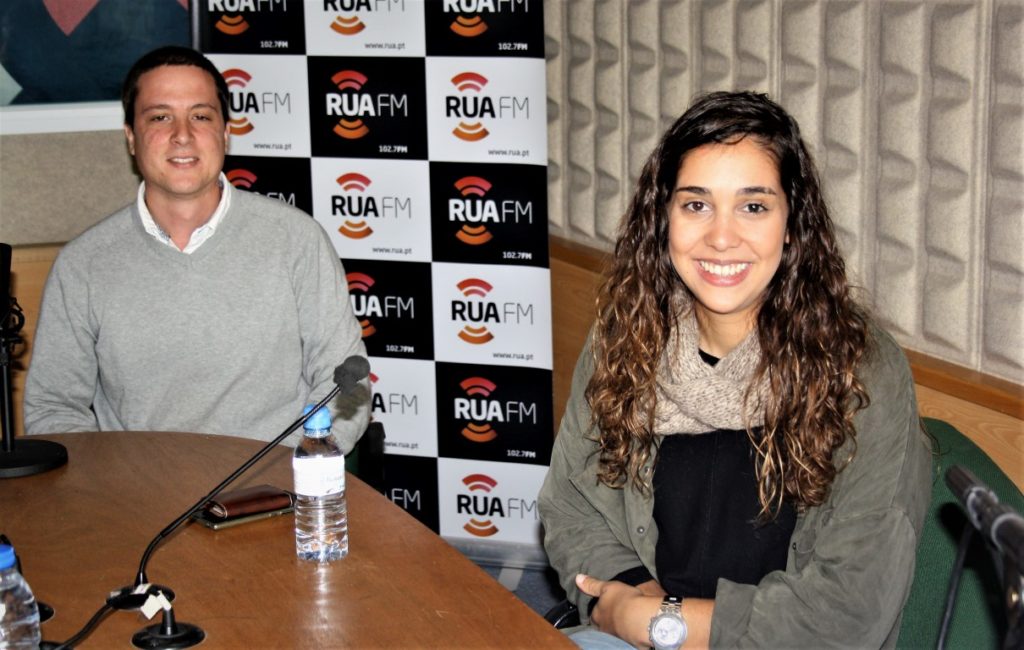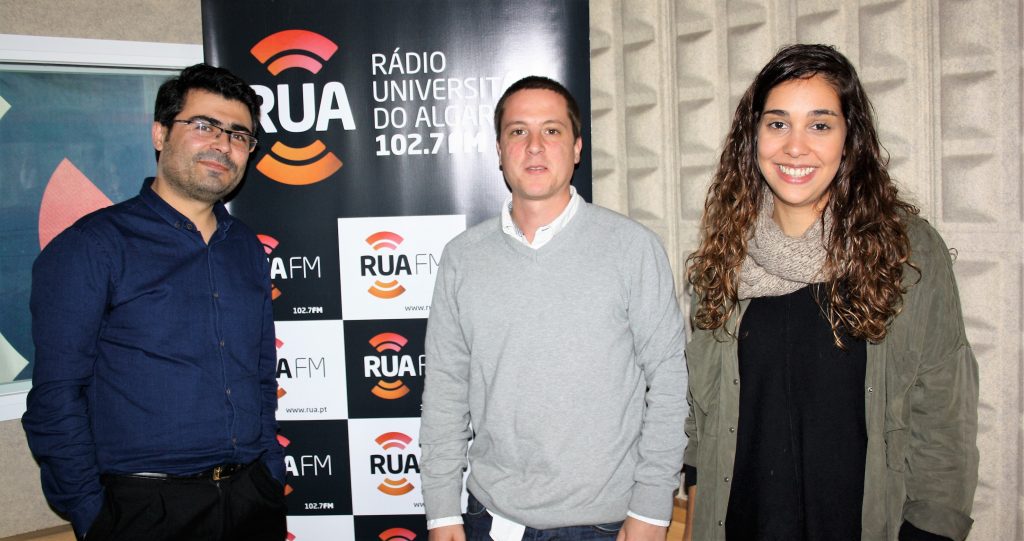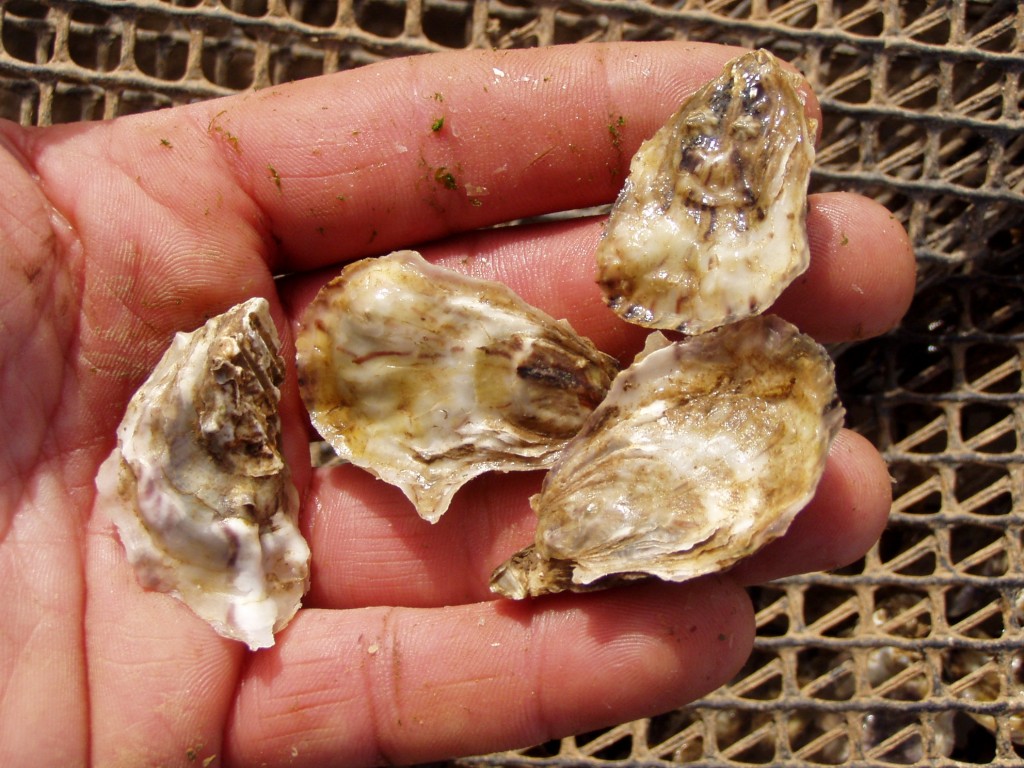 From the identification of a gap in the oyster production market, by two colleagues from the Marine Biology course at the University of Algarve, an idea was born. From it, an application to Ideias em Caixa from CRIA – UAlg's Entrepreneurship and Technology Transfer Division was born.
From the identification of a gap in the oyster production market, by two colleagues from the Marine Biology course at the University of Algarve, an idea was born. From it, an application to Ideias em Caixa from CRIA – UAlg's Entrepreneurship and Technology Transfer Division was born.
And it was the victory in this business ideas competition that gave rise to the startup Mirabilis – Sustainable Aquaculture, which is developing a pilot project for the production of Portuguese oyster seed, a very popular species, but whose production is currently very low.
Márcia Santos and Maurício Namora are the two young entrepreneurs behind this company and the proponents of the candidacy that won first prize at Ideias em Caixa 2014. Since then, they have matured the idea – then known as the Angulata project –, they have reached a partnership with Portuguese Institute of the Sea and Atmosphere (IPMA) to develop the necessary tests and are already starting to think about taking a step further, towards the production of oyster seed for commercial purposes.
They were both talking with the Sul Informação and with Rádio Universitária do Algarve Rua FM (102.7 FM), as guests of the Impressões program, to make known their experience and help CRIA director Hugo Barros to launch a new edition of Ideias em Caixa, which already has open applications.
When they were still attending the Marine Biology course, Márcia and Maurício realized that, despite the Portuguese oyster being highly appreciated indoors and outdoors, it is hardly produced, despite having been predominant in national production.
«We believe that our company is filling a very big gap in the national oyster farming sector, which is dependent on oyster seed from the foreign market, as there are no maternities in Portugal. Most of the oyster seed that is introduced into cultivation systems comes from the French market. There is also a small part that comes from natural banks, but they are also scarce», summarized Maurício Namora.

In the case of the Portuguese oyster, the natural banks that still exist «are concentrated in only three places», which makes «very difficult for oyster producers to have access to seed in the national market, and even more so of the Portuguese variety».
A reality that Mirabilis intends to change, not least because the production of this species was predominant in the 60s of the 9th century, when "about 100 thousand tons of Portuguese oysters per year" were produced nationwide, when nowadays it is summarizes “about XNUMX tons”, in a universe of total production of this bivalve that is “in the order of one thousand tons per year”, according to Márcia Santos.
The advantages of producing “our” oyster, to the detriment of the Pacific oyster, the dominant species in the national oyster industry, are several. From the outset, gastronomic, as this variety is highly appreciated by consumers. But also for environmental and even production reasons, as this is a type of oyster that is perfectly adapted to our climate and waters.
«The differences, at sight, do not exist. It is very difficult to distinguish with the naked eye between different varieties of oyster. However, there are differences in terms of taste. Organoleptic tests have already been carried out by IPMA and consumers have shown preference for the Portuguese oyster. But what is most important and interesting for us is that this oyster has 500 years of adaptation to our waters and, therefore, is much easier to cultivate», said Maurício Namora.
With this in mind, the pair of entrepreneurs has gone to work and is perfecting a seed production method that will allow them to take a step forward, towards a commercial oyster maternity, which will be unique in Portugal. But getting here was not easy.
 «It has been a journey of a lot of work and with many difficulties. One of the biggest was finding a suitable space for aquaculture production. There are many business incubators that are emerging, at the national level, but few are adapted to this reality of ours», revealed Márcia Santos.
«It has been a journey of a lot of work and with many difficulties. One of the biggest was finding a suitable space for aquaculture production. There are many business incubators that are emerging, at the national level, but few are adapted to this reality of ours», revealed Márcia Santos.
The necessary space eventually emerged, as part of a partnership developed by the young company with IPMA, whose facilities «already had the necessary characteristics for the installation of a saltwater aquaculture».
«We have already carried out several cycles of Portuguese oyster seed production. Our objective, in this pilot phase, taking into account that the seed production protocol is already well established abroad, is to adapt it to the Portuguese oyster. We have managed to do it successfully», revealed the young marine biologist.
At the moment, Maurício and Márcia are carrying out «seed growth tests». "We hope to start the commercialization phase soon," they revealed. Also because there is a market enthusiastic about the idea of being able to count on Portuguese oyster seed.
"Last year, when there was a great slaughter of Pacific oyster, we were contacted by many producers who were looking for another solution, another product that could work. It is still unclear what caused the death of the oysters, in Alvor, but also here in Ria Formosa. However, the Portuguese oyster, with its 500 years of adaptation, showed greater resistance to external factors that caused this mortality», according to Maurício Namora.


















Comments